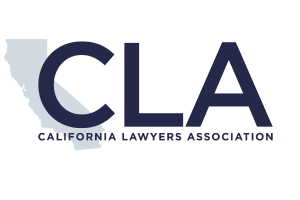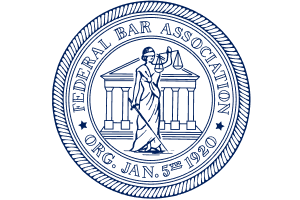Getting Results
CDTFA Sales Tax – Dual Determination Against Business Owners
Understanding Responsible Person Liability Under California Revenue and Taxation Code Section 6829 and Regulation 1702.5
At Tax Lawyers Group, APC, our experienced tax attorneys in Los Angeles specialize in defending individuals and businesses against complex tax liabilities, including CDTFA Sales Tax Dual Determination against Business Owners under California Revenue and Taxation Code Section 6829 and Regulation 1702.5. If you’ve received a notice from the California Department of Tax and Fee Administration (CDTFA) holding you personally liable, sales tax dual determination, for unpaid corporate sales or use taxes, do not speak with the CDTFA until you had a chance to speak with a tax attorney. Our sales tax lawyers are here to provide strategic, personalized legal representation to protect you from CDTFA Sales Tax – Dual Determination against business owners and executives.
California RT&C Section 6829 and Regulation 1702.5, outlines California’s dual determination process for uncollected CDTFA sales taxes.
What is Dual Determination Sales Tax Liability Under Section 6829?
California Revenue and Taxation Code Section 6829 assesses sales tax liability on individuals associated with a corporation, partnership, limited liability company (LLC), or other business entity for unpaid sales and use taxes to CDTFA, including interest and penalties, upon the termination or dissolution of the business. This sales tax liability against an individual, also known as dual determination for sales tax, is proper only if it is deemed a responsible person of the company willfully failed to pay or caused the sales taxes not to be paid. CDTFA Regulation 1702.5 provides defines “responsible person” “willful” failure to pay CDTFA sales tax. These two provisions are the legal tax basis for CDTFA to pursue individuals—such as officers, partners —who had control over the company’s tax-related and financial responsibilities.
CDTFA must prove two legal elements:
- The individual was a responsible person with control or supervision over tax filings or payments.
- The failure to pay taxes was willful, meaning it was an intentional, conscious, and voluntary act.
California’s Dual Determination Jurisdiction
California operates as a dual determination jurisdiction under Section 6829 and Section 6487 of the Revenue and Taxation Code. This means the CDTFA can issue two separate assessments:
- One against the business entity for unpaid taxes.
- A second against individuals deemed responsible for the business’s failure to pay those taxes.
The CDTFA typically pursues the business’s assets to collect unpaid sales tax. If collection efforts against the business are unsuccessful (e.g., due to bankruptcy or dissolution), the CDTFA may issue a dual determination sales tax assessment against responsible individuals. This process can result in significant personal financial exposure, as individuals may be held liable for the full amount of unpaid taxes, plus interest and penalties.
Our Los Angeles tax attorneys at Tax Lawyers Group, APC, are skilled in challenging dual determinations by scrutinizing the CDTFA’s evidence and building a robust defense based on the specific facts of your case.
Key Factors in Defending Against Responsible Person Liability
To impose personal liability, the CDTFA must establish that you were a responsible person and that your failure to pay taxes was willful. Below, we outline the critical factors we analyze to defend clients against these assessments, as well as strategies to challenge the CDTFA’s claims.

1. Determining Responsible Person Status – Sales Tax Dual Determination
A “responsible person” is any individual with control or supervision over, or responsibility for, filing tax returns or paying taxes. This may include officers, managers, partners, or employees, but holding a title alone is insufficient to establish liability. The CDTFA must prove you had actual authority or a duty to act. Our Sales Tax Lawyers in Los Angeles will examine the following to challenge responsible person status:
Factors to Consider in Dual Determination-Responsible Party, Willful and Intentional Analysis
- The actual “office” position held by the person to be charged and the exact tax periods during which he/she held it.
- The actual duties of the taxpayer as shown by corporate records and employment agreement.
- The period during which each officer or “responsible person” could sign/endorse checks.
- Look at bank documents and signatory cards.
- How many checks were signed and for what purpose. Look for patterns in the checks in terms of amount, periods and purpose.
- Who signed the Sales Tax Forms?
- Were the funds available to pay the sales taxes? Look at bank balances in January, April, July, and October. Need to establish that although the funds were available someone else in the corporation prevented the payment of the tax.
- Ask who was responsible for preparing the checks? Is the signer of the checks just following orders from someone that had actual control of the funds?
- Ask who prepared the returns? Was the signer just following orders? Your client may have signed the returns without understanding that the taxes weren’t being paid.
- Who is responsible for purchase and sales? Look to see if the person in control of personnel also controls finances?
- Are there any co-signers required for the checks? Look at the extent, period and purpose of the consigner’s authority.
- Look for assets that may still be available to pay the taxes? Did any of the other officers or individuals steal corporate assets that prevented the payment of taxes?
- Did the statute of limitations expire as to prevent the CDTFA from assessing the taxes?
- Even if you were the responsible party, the taxpayer may have lacked the intent or willfulness to not pay the taxes. If the taxpayer is not business savvy or hired other individuals to perform the duty then the taxpayer can challenge the intent aspects of the trust fund taxes. Look at time line of events to see when the taxpayer realized non payment of taxes. What did the client do to correct the situation?
2. Assessing Willfulness
Under the California RT&C, “Willful” failure willfully fails to pay or to cause to be paid means the failure was the result of an intentional, conscious, and voluntary course of action by an individual. The CDTFA must prove you knew the taxes were unpaid and also had the authority to pay them but willfully decided not to.
How Does a Sales Tax Lawyer Attack Willfulness? Some factors to consider:
- Knowledge of Sales Tax Non Payment: We go through the discovery process to establish a timeline when you became aware of the unpaid CDTFA Sales tax. If you were unaware of the unpaid taxes due to reliance on others (accountant, other officers), there are legal basis to challenge willful element under the tax code.
- Post Discovery Actions: If an individual took affirmative steps to address the unpaid sales taxes reasonably upon discovery (installment tax payments or hiring tax attorneys), collateral attack against CDTFA showing lack of willful intent can be established.
- Reliance on Professionals: Many taxpayers lack tax expertise or delegated tax responsibilities to others, challenge based on delegation are indicators and support the case that your failure to pay CDTFA sales tax was not intentional.
- Intentional Interference by Corporate Insider: We examine whether another individual in the corporation prevented tax payments, such as by diverting funds or overriding your authority. This can shift liability away from the original target of the CDTFA dual determination assessment.
3. Financial and Documentary Evidence for Sales Tax Dual Determination
The CDTFA relies heavily on financial records to establish both responsibility and willfulness. Our tax attorneys prereview the following documents to build your CDTFA tax defense:
- Bank Documents and Signatory Cards: We analyze who had authority to sign or endorse checks during the relevant tax periods. If you were not a signatory or signed checks under someone else’s direction, we can argue you lacked control.
- Check Patterns: We examine the number, amount, and purpose of checks you signed. For example, if you signed checks for operational expenses but not tax payments, we can argue you were following orders rather than willfully avoiding taxes.
- Sales Tax Forms: We investigate who prepared and signed the sales tax returns. If you signed returns without knowledge that taxes were unpaid, this can negate willfulness.
- Bank Balances: We review bank statements for January, April, July, and October (when sales taxes are typically due) to determine if funds were available to pay taxes. If funds were insufficient or controlled by others, we can argue you were unable to pay.
- Co-Signer Requirements: If checks required co-signers, we assess their authority and involvement. Limited or shared authority can weaken the CDTFA’s case.
- Asset Diversion: We investigate whether other officers or individuals misappropriated corporate assets, preventing tax payments. This can shift liability or reduce your exposure.
4. Statute of Limitations
The CDTFA must issue a notice of deficiency determination within:
- Three years from the last day of the calendar month following the quarter in which the CDTFA gained actual knowledge of the business’s termination, dissolution, or abandonment (via audits, compliance activities, or written communication from the business).
- Eight years from the last day of the calendar month following the quarter in which the business was terminated, dissolved, or abandoned, whichever is earlier.
If the CDTFA’s notice is untimely, we can move to dismiss the assessment. We also verify whether the business filed a termination notice with a state or local agency (other than the CDTFA), as such filings do not trigger the three-year period.
5. Mitigating CDTFA Sales Tax Dual Determination
Even if you were a responsible person, we can challenge liability by demonstrating mitigating circumstances, such as:
- Lack of Intent: If you relied on others to handle tax obligations or were misled about the company’s tax compliance, we can argue the failure was not willful.
- Financial Constraints: If the business lacked funds to pay taxes due to unforeseen circumstances (e.g., economic downturns or mismanagement by others), we can argue the failure was not voluntary.
- Corrective Actions: Evidence of your efforts to resolve the tax delinquency can demonstrate good faith and reduce penalties.
Case Law and Legal Precedents
Our tax attorneys leverage relevant case law to strengthen your defense. Key cases include:
- In re Latin (BAP 9th Cir. 2009): Clarified that “control over operations or management” means the power to manage day-to-day operations, with a rebuttable presumption that officers have such power. We can rebut this presumption by showing you lacked actual control.
- State Board of Equalization v. Wirick (Cal. Ct. App.): Addressed the interpretation of Section 6829, emphasizing that liability applies only to taxes due during the period of control and requires proof of willful failure.
- Wright v. United States (7th Cir. 1987): Established that willfulness requires actual knowledge or reckless disregard of tax delinquencies, providing a framework to challenge intent.
By analyzing these and other precedents, we craft arguments tailored to your specific circumstances, increasing the likelihood of a favorable outcome.
How Tax Lawyers Group APC Can Help
Facing a CDTFA responsible person liability assessment can be daunting, but you don’t have to navigate it alone. Our tax attorneys offer:
- Comprehensive Case Evaluation: We review all relevant documents, including corporate records, bank statements, and CDTFA notices, to identify weaknesses in the agency’s case.
- Strategic Defense: We develop a customized defense strategy, challenging responsible person status, willfulness, or the statute of limitations as appropriate.
- Negotiation and Appeals: We negotiate with the CDTFA to reduce or eliminate liability and represent you in administrative hearings or appeals if necessary.
- Asset Protection: We explore options to protect your personal assets, such as identifying other liable parties or recovering misappropriated corporate funds.
Contact Us Today
If you’ve been targeted by the CDTFA for responsible person liability under Section 6829 and Regulation 1702.5, prompt action is critical. The statute of limitations and procedural deadlines can limit your ability to contest the assessment. Our sales tax attorneys combine deep expertise in CDTFA Sales tax law with a client-centered approach to deliver results.
Schedule a free consultation by calling (310) 788 9820 or filling out our Contact Us page.





















